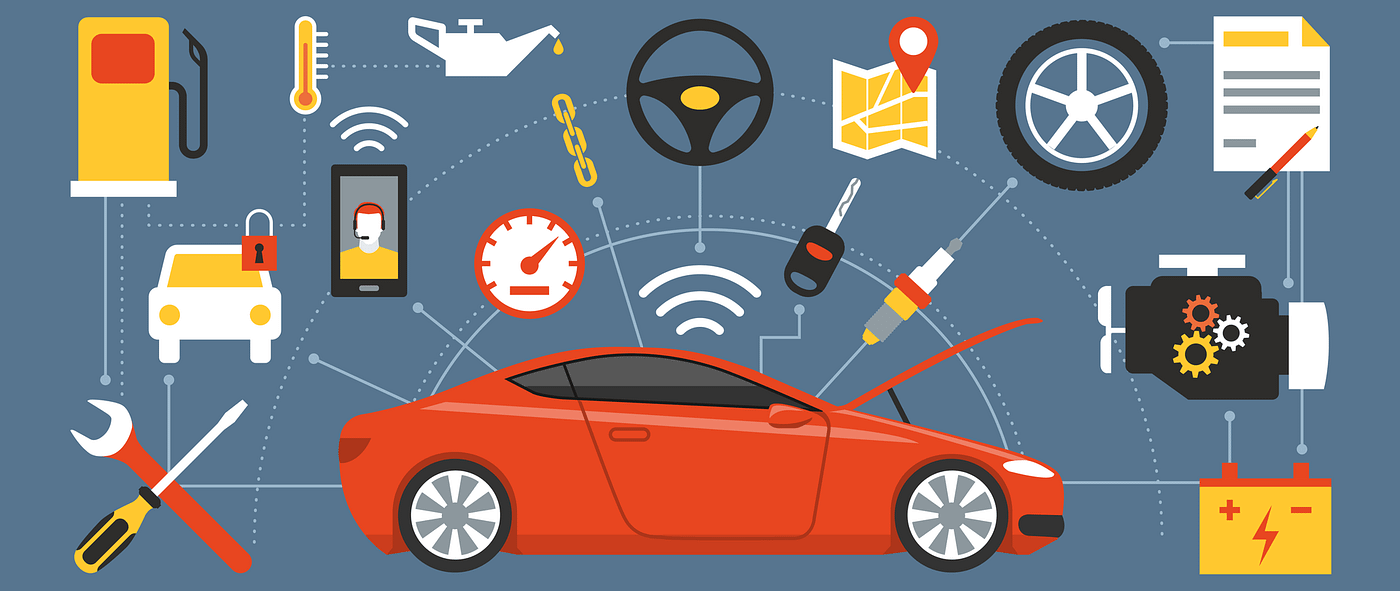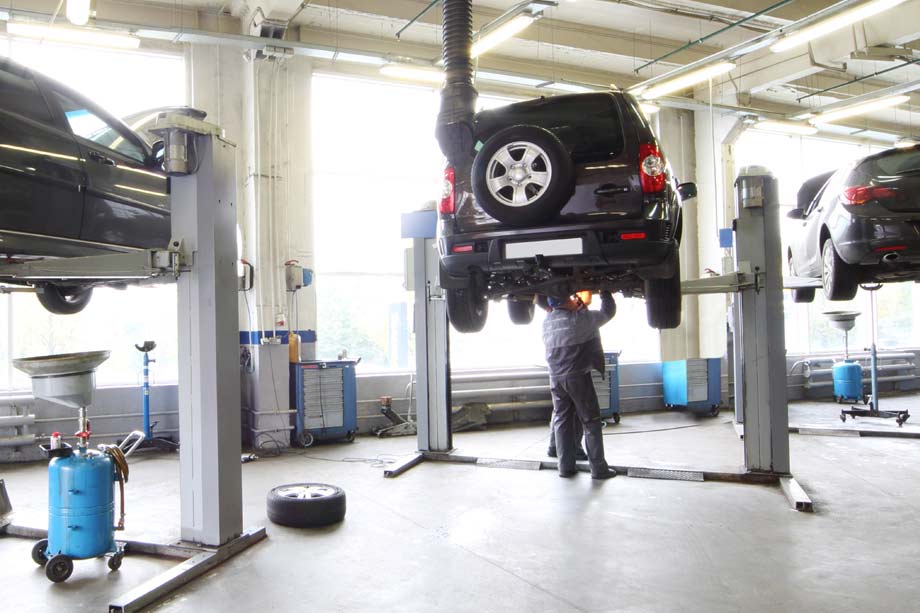All Categories
Featured
Your automobile's engine is a complicated system that counts on lots of interconnected parts to operate properly. One of the most critical parts that ensures whatever runs smoothly is the timing belt. Often ignored, the timing belt plays an essential duty in maintaining your engine synchronized and running at peak performance. Neglecting its maintenance or replacement can lead to severe, expensive damage to your engine. In this article, we'll discover the significance of timing belt replacement and why it's vital to your engine's durability.
What Is a Timing Belt and Exactly How Does It Function? The timing belt is a rubber or enhanced composite belt that attaches the crankshaft to the camshaft in your engine. These two components should operate in sync for the engine's valves to open and close at the best times during the combustion cycle. The timing belt controls this synchronization, making certain that the pistons and shutoffs don't collide.
![]()
As your engine runs, the timing belt consistently relocates to keep these components straightened. Over time, the belt undergoes deterioration from engine, heat, and rubbing vibrations. If it damages or becomes loose, the crankshaft and camshaft will certainly no longer be synchronized, creating engine misfires, loss of power, or, in the worst situation, serious engine damages.
Why Timing Belt Replacement Is Essential. Avoids Serious Engine Damages: If the timing belt breaks while the engine is running, the pistons can hit the valves, triggering bent shutoffs, harmed pistons, and even a split engine block. This type of damage typically calls for costly and extensive repair services or an entire engine replacement. Changing the timing belt before it fails is a economical and straightforward means to prevent such disastrous consequences.
![]()
Ensures Smooth Engine Operation: A well-maintained timing belt aids maintain your engine running smoothly by preserving the correct synchronization in between the crankshaft and camshaft. When the timing belt is broken or extended, the timing of the engine's valves may be off, triggering engine misfires, harsh idling, or stalling. Replacing the timing belt at the suggested interval guarantees that the engine runs as it was developed to, optimizing efficiency and efficiency.
Saves You Cash: Although changing the timing belt may feel like a substantial in advance expense, it's much more budget-friendly than the price of fixing or replacing a harmed engine. The labor associated with replacing the timing belt is a lot less expensive than repairing engine parts that are damaged as a result of a damaged belt. Regular timing belt replacement can conserve you hundreds of dollars in the future by avoiding engine failure and expensive repair services.
Protects Against Unexpected Malfunctions: If your timing belt breaks suddenly while you're driving, it can leave you stranded and call for expensive towing. In the most awful situations, it can create a full engine failure that makes your auto inoperable. By changing the timing belt according to the maker's guidelines, you minimize the risk of unexpected malfunctions and ensure your car stays reliable during daily driving and long journeys.
When Should You Replace Your Timing Belt? The timing belt does not last for life, and its replacement timeline can vary depending upon the make and model of your car. A lot of manufacturers recommend replacing the timing belt every 60,000 to 100,000 miles. However, it is essential to consult your automobile's owner's manual for specific standards, as some engines may need earlier or later replacements.
If you're unsure about the condition of your timing belt, indicators that it might need changing consist of unusual engine noise (such as ticking or slapping noises), trouble starting the engine, or poor engine efficiency. A professional mechanic can examine the timing belt for damage and replace it if essential.
Verdict. The timing belt is a vital part of your car's engine, and its appropriate maintenance can conserve you from expensive repair work and engine damage. Frequently changing the timing belt at the supplier's recommended periods assists ensure smooth engine procedure, avoids unforeseen break downs, and eventually prolongs the life of your engine. Do not disregard this crucial upkeep job-- by remaining on top of timing belt replacement, you're buying the long-term wellness of your lorry.
What Is a Timing Belt and Exactly How Does It Function? The timing belt is a rubber or enhanced composite belt that attaches the crankshaft to the camshaft in your engine. These two components should operate in sync for the engine's valves to open and close at the best times during the combustion cycle. The timing belt controls this synchronization, making certain that the pistons and shutoffs don't collide.

As your engine runs, the timing belt consistently relocates to keep these components straightened. Over time, the belt undergoes deterioration from engine, heat, and rubbing vibrations. If it damages or becomes loose, the crankshaft and camshaft will certainly no longer be synchronized, creating engine misfires, loss of power, or, in the worst situation, serious engine damages.
Why Timing Belt Replacement Is Essential. Avoids Serious Engine Damages: If the timing belt breaks while the engine is running, the pistons can hit the valves, triggering bent shutoffs, harmed pistons, and even a split engine block. This type of damage typically calls for costly and extensive repair services or an entire engine replacement. Changing the timing belt before it fails is a economical and straightforward means to prevent such disastrous consequences.

Ensures Smooth Engine Operation: A well-maintained timing belt aids maintain your engine running smoothly by preserving the correct synchronization in between the crankshaft and camshaft. When the timing belt is broken or extended, the timing of the engine's valves may be off, triggering engine misfires, harsh idling, or stalling. Replacing the timing belt at the suggested interval guarantees that the engine runs as it was developed to, optimizing efficiency and efficiency.
Saves You Cash: Although changing the timing belt may feel like a substantial in advance expense, it's much more budget-friendly than the price of fixing or replacing a harmed engine. The labor associated with replacing the timing belt is a lot less expensive than repairing engine parts that are damaged as a result of a damaged belt. Regular timing belt replacement can conserve you hundreds of dollars in the future by avoiding engine failure and expensive repair services.
Protects Against Unexpected Malfunctions: If your timing belt breaks suddenly while you're driving, it can leave you stranded and call for expensive towing. In the most awful situations, it can create a full engine failure that makes your auto inoperable. By changing the timing belt according to the maker's guidelines, you minimize the risk of unexpected malfunctions and ensure your car stays reliable during daily driving and long journeys.
When Should You Replace Your Timing Belt? The timing belt does not last for life, and its replacement timeline can vary depending upon the make and model of your car. A lot of manufacturers recommend replacing the timing belt every 60,000 to 100,000 miles. However, it is essential to consult your automobile's owner's manual for specific standards, as some engines may need earlier or later replacements.
If you're unsure about the condition of your timing belt, indicators that it might need changing consist of unusual engine noise (such as ticking or slapping noises), trouble starting the engine, or poor engine efficiency. A professional mechanic can examine the timing belt for damage and replace it if essential.
Verdict. The timing belt is a vital part of your car's engine, and its appropriate maintenance can conserve you from expensive repair work and engine damage. Frequently changing the timing belt at the supplier's recommended periods assists ensure smooth engine procedure, avoids unforeseen break downs, and eventually prolongs the life of your engine. Do not disregard this crucial upkeep job-- by remaining on top of timing belt replacement, you're buying the long-term wellness of your lorry.
Latest Posts
Find Out Why Chicago Drivers Select Montclare Auto Repair for Reliable Service and Huge Savings
Published May 12, 25
1 min read
Discover the Rich Past of Deauville Inn: From Speakeasy to Jersey Shore Icon
Published May 12, 25
2 min read
Improve Your Residential Property with Overhead Door Solution
Published May 11, 25
1 min read
More
Latest Posts
Find Out Why Chicago Drivers Select Montclare Auto Repair for Reliable Service and Huge Savings
Published May 12, 25
1 min read
Discover the Rich Past of Deauville Inn: From Speakeasy to Jersey Shore Icon
Published May 12, 25
2 min read
Improve Your Residential Property with Overhead Door Solution
Published May 11, 25
1 min read